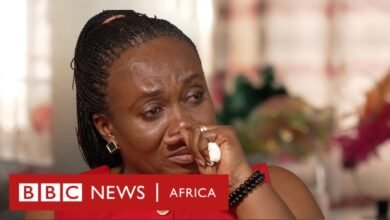Movie Review for the Week: “Special” (2025) — A Heartbreaking Story of Autism, Stigma, and the Power of Care

Ego Nwosu’s Special (2025) is not just a family drama, it is a courageous and deeply emotional exploration of neurodiversity, caregiving, and the painful weight of stigma within families.
The film tells the story of a young man who is differently abled and lives with autism. Hidden away and rejected by his wealthy family, he finds an unexpected champion in his young caregiver who refuses to treat him as invisible. By confronting the family’s silence, the film shines a light on the often-hidden realities faced by differently abled children in Nigeria.
Autism, Stigma, and the Right to Belong
At its heart, Special exposes the cruelty of stigma. The family’s determination to keep their child locked away, calling him a “distant relative” and erasing his existence mirrors the painful shame and secrecy many families feel when raising neurodivergent children.
Autism stigma is the prejudice, misconceptions, and discrimination faced by autistic individuals and their families, often rooted in a lack of public understanding. It can deeply harm mental and physical health, social connection, and well-being.
Common misconceptions the film challenges include:
- Autism as a “mental illness” or defect rather than a neurological variation
- False beliefs about empathy, assuming autistic people do not care, when in fact many simply express empathy differently
- Misinterpretation of behaviors like stimming or sensory overloads as disruptive, frightening, or deliberate misbehavior
- Cultural taboos and secrecy, which intensify shame and silence
By showing the caregivers quiet tenderness, rich inner world, and desire for connection, Special compels us to see differently abled children not as broken, but as whole human beings deserving of love, respect, and visibility.
Parenting, Love, and the Courage to See
His parents embody two extremes: the father’s cold indifference and the mother’s open resentment. Their rejection of their own son raises a critical question: What does it mean to be a parent if love is conditional?
The caregiver though inexperienced, becomes the emotional center of the story. She chooses to see him as he is, not as a problem to be hidden. Through patience, respect for his communication style, and celebrating his small victories, she shows that caregiving is not about expertise but empathy.
The film reminds parents that raising a differently abled child requires:
- Creating a safe, predictable environment
- Respecting the child’s unique way of communicating
- Engaging with their interests
- Guarding their dignity and affirming their worth
Breaking the Cycle of Silence
Perhaps the most powerful moment comes when the caregiver refuses to collude in the family’s secrecy. By choosing visibility over shame, she breaks the cycle of silence. Her courage suggests that healing begins when families confront their fears and not hide them.
Parenting Tools: How to Nurture a Differently Abled Child
Create a Nurturing Environment
- Establish routines for stability and reassurance
- Ensure safety so the child feels secure navigating the world
- Manage sensory needs by understanding and reducing triggers
Communicate and Connect
- Respect their communication style (verbal, nonverbal, assistive tech)
- Engage with their interests to build trust and joy
- Understand their feelings even when they struggle to express them
Promote Development
- Celebrate efforts to boost confidence
- Encourage independence through social and emotional skills
- Use transition warnings (timers, countdowns) to reduce anxiety
Practice Self-Care
- Build a support system of family, friends, and professionals
- Take time for yourself to prevent burnout
- Set realistic expectations and accept that progress is gradual
Key Takeaways
For Parents
- Love must be unconditional, not dependent on ability
- Respect your child’s individuality and dignity
- Seek support; you do not have to do it alone
For Caregivers
- Empathy matters more than expertise
- Learn the child’s rhythm and communication style
- Celebrate small milestones to build trust
For Communities & Policymakers
- Public education on autism reduces stigma
- Families need accessible therapy and respite care
- Schools must be equipped to support neurodivergent learners
For Society
- Stigma isolates, but acceptance heals
- Every child deserves visibility, not secrecy
- Difference is not shameful, silence is
Conclusion
Special is a groundbreaking Nigerian film that humanizes autism and challenges the silence around children who are differently abled. It urges us to replace fear with empathy, and secrecy with love.
Ultimately, the film reframes the question from:
“How do we fix this child?” to “How do we love this child as they are and build a world that includes them?”
Currently streaming on: Ego Nwosu TV YouTube Channel





